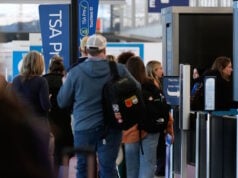
By Lucas Ropek
A recruitment platform used by McDonald’s is alleged to have had such poor cybersecurity that researchers were able to log into it using a non-password and thus gain access to information on tens of millions of job applicants, including contact details and chat logs between the user and the restaurant’s AI bot.
The platform in question, called McHire, operates a chatbot, dubbed Olivia. Job applicants chat with Olivia, who, in an effort to decide whether they’re worthy of flipping hamburgers or not, assesses them via a personality test. The bot was created by a company called Paradox.ai.
Security researchers Sam Curry and Ian Carroll found that, using the username/password combination 123456/123456, they were able to log into the application, where they were given access to a treasure trove of information on job applicants. Indeed, Curry and Carroll were able to “retrieve the personal data of more than 64 million applicants,” the researchers write.
Their write-up is as hilarious as it is disturbing. The duo notes:
“Without much thought, we entered “123456” as the username and “123456” as the password and were surprised to see we were immediately logged in! It turned out we had become the administrator of a test restaurant inside the McHire system.
The information included names, email addresses, phone numbers, addresses, the state where the job candidate lived, and the auth token they used to gain access to the website. Additionally, Curry and Carroll could see “every chat interaction [from every person] that has ever applied for a job at McDonald’s.”
It’s all pretty shameful stuff, although not particularly surprising. Cybersecurity has never been prioritized in the corporate world, which is why everything is getting hacked all the time. Many software programs are designed without any apparent concern for security at all. Still, the level of incompetence here is pretty damn bad and should be considered embarrassing for everyone involved.
It’s all pretty shameful stuff, although not particularly surprising. Cybersecurity has never been prioritized in the corporate world, which is why everything is getting hacked all the time. Many software programs are designed without any apparent concern for security at all. Still, the level of incompetence here is pretty damn bad and should be considered embarrassing for everyone involved.
Curry and Carroll write that they disclosed the security problems to Paradox.ai and McDonald’s on June 30th. On the same day, the restaurant chain confirmed that the credentials in question were “no longer usable to access the app.” On July 1st, Paradox.ai. communicated to the researchers that the issues had “been resolved.” In a blog post, Paradox clarified what had happened: “On June 30, two security researchers reached out to the Paradox team about a vulnerability on our system. We promptly investigated the issue and resolved it within a few hours of being notified.” The company went on to say:
Using a legacy password, the researchers logged into a Paradox test account related to a single Paradox client instance. We’ve updated our password security standards since the account was created, but this test account’s password was never updated. Once logged into the test account, the researchers identified an API endpoint vulnerability that allowed them to access information related to chat interactions in the affected client instance. Unfortunately, none of our penetration tests previously identified the issue.
Gizmodo reached out to both companies for more information.
Disclaimer
Artificial Intelligence Disclosure & Legal Disclaimer
AI Content Policy.
To provide our readers with timely and comprehensive coverage, South Florida Reporter uses artificial intelligence (AI) to assist in producing certain articles and visual content.
Articles: AI may be used to assist in research, structural drafting, or data analysis. All AI-assisted text is reviewed and edited by our team to ensure accuracy and adherence to our editorial standards.
Images: Any imagery generated or significantly altered by AI is clearly marked with a disclaimer or watermark to distinguish it from traditional photography or editorial illustrations.
General Disclaimer
The information contained in South Florida Reporter is for general information purposes only.
South Florida Reporter assumes no responsibility for errors or omissions in the contents of the Service. In no event shall South Florida Reporter be liable for any special, direct, indirect, consequential, or incidental damages or any damages whatsoever, whether in an action of contract, negligence or other tort, arising out of or in connection with the use of the Service or the contents of the Service.
The Company reserves the right to make additions, deletions, or modifications to the contents of the Service at any time without prior notice. The Company does not warrant that the Service is free of viruses or other harmful components.












